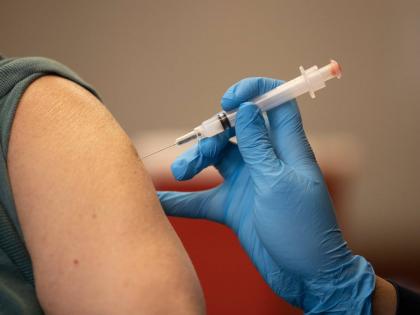Russia Develops New Cancer Vaccine, Set for Free Distribution to Citizens in 2025
By Lokmat English Desk | Updated: December 18, 2024 09:49 IST2024-12-18T09:49:06+5:302024-12-18T09:49:32+5:30
Russia has announced a significant breakthrough for cancer patients, with its health ministry revealing the development of a cancer ...

Russia Develops New Cancer Vaccine, Set for Free Distribution to Citizens in 2025
Russia has announced a significant breakthrough for cancer patients, with its health ministry revealing the development of a cancer vaccine. The vaccine, set to be launched in early 2025, will be provided free of charge to Russian citizens. Andrey Kaprin, the head of the Radiology Medical Research Center at the Russian Health Ministry, confirmed the news.
According to the report, the vaccine is designed for the treatment of cancer patients, rather than preventing tumor formation. Previous statements from Russian scientists indicate that each vaccine will be tailored to individual patients, similar to the cancer vaccines currently being developed in Western countries. The specific type of cancer the vaccine will target, its effectiveness, and the implementation process in Russia remain unclear. Additionally, the vaccine's name has not yet been disclosed.
Cancer cases have been increasing in Russia in recent years, with over 635,000 cases reported in 2022. Colon, breast, and lung cancers are among the most common types in the country. Cancer vaccines work by training the immune system to recognize and respond to specific proteins associated with a patient's cancer. To achieve this, the vaccines use RNA, a genetic material derived from the patient's tumor, to target and fight the disease.
President Vladimir Putin recently stated that Russian scientists are in the final stages of developing a cancer vaccine. "We are very close to the development of cancer vaccines and new-generation immunomodulatory drugs," he said. Meanwhile, other countries have also been working on their own cancer vaccines. In May, researchers at the University of Florida tested an individual vaccine on four patients, marking a significant step in the global effort to combat cancer.
Open in app